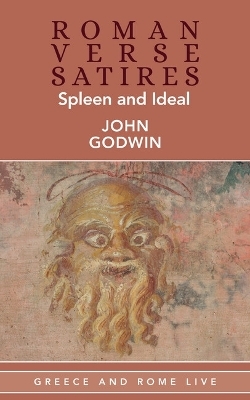
Roman Verse Satires
Spleen and Ideal
Seiten
2024
Liverpool University Press (Verlag)
978-1-80207-469-7 (ISBN)
Liverpool University Press (Verlag)
978-1-80207-469-7 (ISBN)
Ebook available to libraries exclusively as part of the JSTOR Path to Open initiative.
The Romans claimed to have invented satire—one of the most enduring and certainly one of the most entertaining genres of literature bequeathed to posterity from the ancient world. Modern satire aims generally to puncture pretence and to hurt its targets with withering caricature and bruising irony, but Roman satire was not so easy to characterise. One of the earliest exponents (Lucilius) went in for some personal invective and set the tone for many a 21st-century scribbler keen to wound his enemies with well-chosen words, but later writers in the Roman tradition distanced themselves from the tradition of personal critique and were reluctant to paint themselves as in any sense attack-dogs. If they were inveighing against folly and vice, it was (they claimed) more in a spirit of positive encouragement to us all to live better and happier lives, freed from the shackles of character-flaws and absurd behaviour. Satire in verse was also a highly self-conscious literary exercise which invested its moral message with layers of irony and wit. This tradition of both personal and philosophical satire laid the foundations for the massive tradition of satire in Europe which continues to this day.
Roman Verse Satires will examine the tradition of hexameter verse satires as practised by Ennius, Lucilius, Horace, Persius and Juvenal and will also present something of the massive influence which this this complex, at times contradictory and entertaining Roman genre had on later literature, culture and film.
The Romans claimed to have invented satire—one of the most enduring and certainly one of the most entertaining genres of literature bequeathed to posterity from the ancient world. Modern satire aims generally to puncture pretence and to hurt its targets with withering caricature and bruising irony, but Roman satire was not so easy to characterise. One of the earliest exponents (Lucilius) went in for some personal invective and set the tone for many a 21st-century scribbler keen to wound his enemies with well-chosen words, but later writers in the Roman tradition distanced themselves from the tradition of personal critique and were reluctant to paint themselves as in any sense attack-dogs. If they were inveighing against folly and vice, it was (they claimed) more in a spirit of positive encouragement to us all to live better and happier lives, freed from the shackles of character-flaws and absurd behaviour. Satire in verse was also a highly self-conscious literary exercise which invested its moral message with layers of irony and wit. This tradition of both personal and philosophical satire laid the foundations for the massive tradition of satire in Europe which continues to this day.
Roman Verse Satires will examine the tradition of hexameter verse satires as practised by Ennius, Lucilius, Horace, Persius and Juvenal and will also present something of the massive influence which this this complex, at times contradictory and entertaining Roman genre had on later literature, culture and film.
John Godwin was for many years Head of Classics at Shrewsbury School, UK. His many publications include Juvenal: Satires Books III, IV and V (Aris & Phillips 2022, 2016 and 2020); Horace: Selected Satires (Bloomsbury 2018), Ovid: Metamorphoses III: A Selection (Bloomsbury 2013) and editions of Lucretius: De Rerum Natura Books IV and VI and the complete works of Catullus for the Aris & Phillips Classical Texts series.
Preface
1. Introduction - What were Roman Satires?
2. The Beginnings: Scouring the city with Caustic Wit
3. Horace – Telling the Truth with a Smile
4. Persius: Burning while Rome Fiddles
5. Juvenal: The Artist of the Topsy-turvy World
6. The Ongoing Tradition—Satire since Antiquity
| Erscheinungsdatum | 18.03.2024 |
|---|---|
| Reihe/Serie | Greece and Rome Live |
| Verlagsort | Liverpool |
| Sprache | englisch |
| Maße | 163 x 239 mm |
| Themenwelt | Literatur ► Klassiker / Moderne Klassiker |
| Geschichte ► Allgemeine Geschichte ► Vor- und Frühgeschichte | |
| Geschichte ► Allgemeine Geschichte ► Altertum / Antike | |
| ISBN-10 | 1-80207-469-4 / 1802074694 |
| ISBN-13 | 978-1-80207-469-7 / 9781802074697 |
| Zustand | Neuware |
| Haben Sie eine Frage zum Produkt? |
Mehr entdecken
aus dem Bereich
aus dem Bereich
auf den Spuren der frühen Zivilisationen
Buch | Hardcover (2023)
C.H.Beck (Verlag)
20,00 €
Konzepte – Methoden – Theorien
Buch | Softcover (2024)
UTB (Verlag)
39,90 €
Was Pompeji über uns erzählt
Buch | Hardcover (2023)
Propyläen (Verlag)
32,00 €


